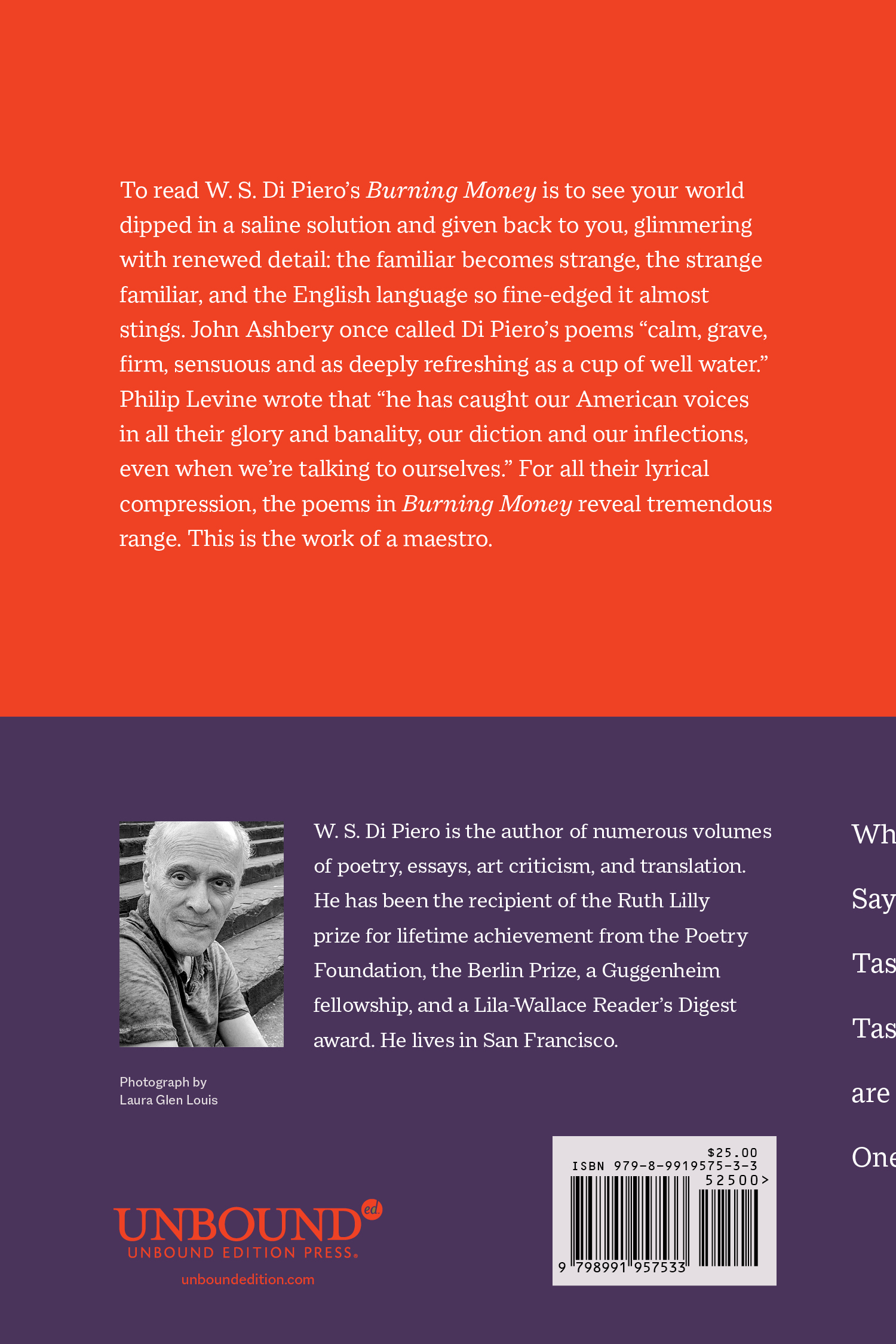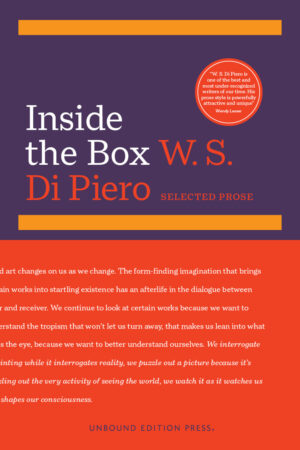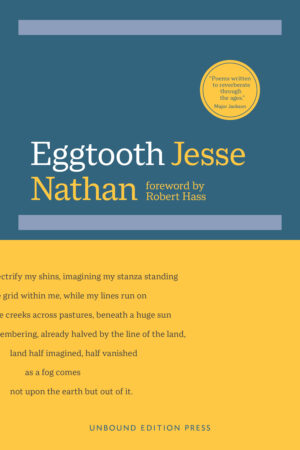Burning Money | W. S. Di Piero | Poetry
For all its lyrical compression, Burning Money reveals tremendous range. The title poem and “Nat Turner’s Dream,” for example, have genuine political power, minus any rhetorical tub-thumping. Then there’s the erotic charge of “Mr. Sandman” and ‘”The Hairbrush,” as well as the celebration of artwork in “Edward Hopper (Yellow and Red)” and “Practice Room.” Di Piero is simply the maestro.
$25.00
Description
Burning Money, W. S. Di Piero
$25.00
ISBN: 9798991957533
Fine Softcover; 80 pages; 6″x9″
Publication Date: August 26, 2025
Summary
For all its lyrical compression, Burning Money reveals tremendous range. The title poem and “Nat Turner’s Dream,” for example, have genuine political power, minus any rhetorical tub-thumping. Then there’s the erotic charge of “Mr. Sandman” and “The Hairbrush,” as well as the celebration of artwork in “Edward Hopper (Yellow and Red)” and “Practice Room.” Di Piero is simply the maestro.
Di Piero is the author of numerous volumes of poetry, essays, art criticism, and translation. He has been the recipient of the Ruth Lilly prize for lifetime achievement from the Poetry Foundation, the Berlin Prize, a Guggenheim fellowship, and a Lila-Wallace Reader’s Digest award. He lives in San Francisco.
John Ashbery once called Di Piero’s poems “calm, grave, firm, sensuous, and as deeply refreshing as a cup of well water.” Philip Levine wrote that “he has caught our American voices in all their glory and banality, our diction and our inflections, even when we’re talking to ourselves.”
Author
W. S. Di Piero is the author of numerous volumes of poetry, essays, art criticism, and translation. He has been the recipient of the Ruth Lilly prize for lifetime achievement from the Poetry Foundation, the Berlin Prize, a Guggenheim fellowship, and a Lila-Wallace Reader’s Digest award. He lives in San Francisco.
Previous Praise
Di Piero gives off cascades of words that run like a warm engine, with all parts working together. There might be a mysterious noise or two along the way but don’t worry, you’ll be back on the road.
Ed Ruscha
Having mastered the art of weaving gold thread from straw, W. S. Di Piero’s [work] exults in such commonplace materials as ‘the argument of an afternoon’ or ‘one street’s undistinguished gift.’ The poetry that results is calm, grave, firm, sensuous and as deeply refreshing as a cup of well water.”
John Ashbery
W. S. Di Piero’s poems tear the outer layer of skin off the world. Radiant in hurt and matter-of-factness, the world — what’s given- jolts into revelation in poems at once homely and cosmic.
Rosanna Warren
W. S. Di Piero’s poems have the texture of American cities, the sights, sounds, and especially the smells of where we’ve lived in the last thirty years, and he has caught our American voices in all their glory and banality, our diction and our inflections, even when we’re talking to ourselves. By some magic — let’s call it inspiration- he knows us even when there’s almost nothing to know.
Philip Levine
R.P. Blackmur once said that great poetry ‘adds to the stock of available reality,’ and that’s certainly true of W. S. Di Piero’s work. He wakes up the language, and in doing so wakes up his readers, whose lives are suddenly sharper and larger than they were before. He’s a great poet whose work is just beginning to get the wide audience it deserves.
Christian Wiman, from the Ruth Lilly Prize (2012) commendation
Offering scrupulously observant freeze frames of consciousness, [Di Piero’s work] deserves convenient placement by the telephone, television, computer, or radio so as to be ready to retune a static-buzzed mind’s reflective potential. With language that’s as simple as it is musical, Di Piero sets dazzling moments amid plainsong.
The New York Times Book Review
“W. S. Di Piero’s poems insistently display the features of great art. The poems eschew solipsism, aggrandizement, and the consolation of fantasy, to grapple with the gritty reality of the twenty-first-century surround. Di Piero’s milieu is firmly urban … things are moving fast with an urgent, yearning-for-more impetus.”
The Philadelphia Inquirer






